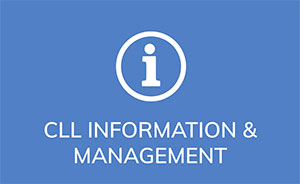By Glenn Sabin
The unique biological environment within each of us influences how a specific disease presents, progresses, and responds.
As cancer goes, there’s the pathology or tumor burden, and there’s the host. While we rely on innovation and scientific discovery to drive therapeutics against CLL—against the malignancy itself—the host environment is largely in our own hands.
CLL often follows an indolent course, taking years to progress, while more aggressive forms advance more quickly. About 90% of people diagnosed with CLL are older than 50, with the average age of diagnosis at 71.
Thousands of us are aging with CLL. As people age, it is harder to maintain a strong immune system and immune resiliency. For those hosting CLL, it can be even more difficult because we are classified as immunocompromised: we now know that COVID-19 vaccines are less effective for CLL survivors, based on the number of antibodies activated.
When I was diagnosed in 1991 at 28 years young and newly married, the common refrain among my oncology team was: “It’s a genetic disease; you did not cause this; live your life”. I was told that nothing lifestyle-related would impact the underlying CLL.
I did not agree. How could my deleterious lifestyle choices—especially poor food choices and stressful career—not affect the CLL lurking in my marrow and blood?
Host Environment is Critical
The medical literature and physicians in my life concentrated on the type of disease I had. I focused on the type of person I was in relation to the environment I created for the disease. I decided to become a horrible host to cancer.
What harm could come from things like: eliminating processed foods and sugars; increasing fruit and vegetable consumption; moving my body daily; limiting environmental and household toxins and chemical exposure; drinking filtered water; improving sleep quality; taking select supplements; being present for my family; and reducing stressors in my life?
This anticancer lifestyle helped strengthen my immune system and increase resiliency. It is likely I’ll never know to what extent this way of living—what specific aspects—impacted the CLL. However, many of the sensible aforementioned approaches to healing are now supported by a burgeoning amount of medical literature.
Setting CLL aside, following the core tenets of sensible lifestyle behavior will likely keep comorbidities at bay. Type 2 diabetes, heart disease, obesity, hypertension each have a hard time thriving in a host environment through which the ‘host’, armed with smart lifestyle habits, calls the shots.
In Tandem with Host: CLL Therapeutics
The drug pipeline for CLL over the last half dozen years has been nothing short of astounding: effective single agents, combo agents, targeted therapies, fixed duration combo regimens, and the potential of CAR-T.
To put things in perspective, when I was diagnosed 30 years ago, the standard of care for CLL had not changed for many years. There was exactly one type of CLL, as genetic prognostication assays did not yet exist; and one set of chemotherapeutics was offered. It would be a dozen years before the discovery of the novel monoclonal antibody Rituximab.
CLL has historically been treated with palliative care. In contrast, today’s anticancer therapy for CLL may still be palliative, but the use of advanced, molecularly targeted agents, require us to view the disease differently, adjusting our expectations of treatment accordingly.
Effectively controlling CLL as a chronic condition with novel pharmaceutical agents—with the goal of undetected minimal residual disease (uMRD)—could be considered a ‘functional cure’, facilitating long periods of remission for many patients.
I am not a proponent of the term ‘cure’ to describe any post-treatment malignancy short of the most early and indolent diagnoses—think early stage prostate cancer and basal cell carcinoma. I’ve never used the word cure to describe my own health status as a CLL survivor, even after a decade of deep and durable remission, and without conventional treatment. (I’ve written about healing versus curing here.)
Moving Forward: A Convergence of Care—Tumor and Host
We began this decade with a global pandemic which pushed us all to new levels of awareness about our own roles as hosts.
This has required people to evaluate their vulnerability, and indeed ‘prepare and fortify’ their own homes, their host environment, for unknown challenges ahead.
The correlation between compromised immune systems and severity of COVID-19, and other pathogens, cannot be ignored by those living with CLL.
In a perfect world, all physicians would actively support the underlying health and fitness of all their patients. Ideally, they would take the time to discuss the basics of healthy lifestyles, or at least refer patients to those with expertise in this area.
If this is not the case with your doctors, then keep your expectations in check. Allow them to be the critical CLL specialists they are, and seek parallel support from a growing multitude of providers trained in lifestyle medicine, integrative oncology, and functional medicine—as well as registered dieticians, personal trainers, and others that can round out your comprehensive, whole person care team.
Bottom line: Let your CLL physician be the disease expert, while you become a horrible host to CLL.

















